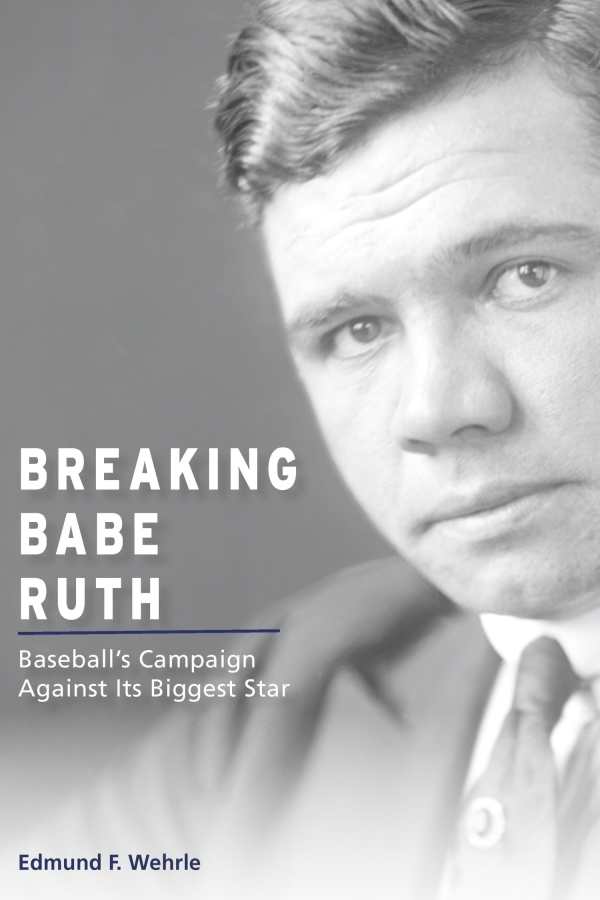Breaking Babe Ruth
Baseball's Campaign Against Its Biggest Star
If Babe Ruth had not captured the public imagination when he did, odds are baseball would never have become the national pastime and the multibillion dollar industry it is today. However, as Edmund F. Wehrle thoroughly details in Breaking Babe Ruth, both the league and the Yankees routinely took steps to undermine their biggest star and damage his reputation. This is an engaging, important book.
The book covers the full arc of Ruth’s life, from being abandoned as a child in Baltimore to a living as a retired legend unable to obtain the manager job he’d long sought. It includes all his familiar on- and off-field highlights. At each point, though, Wehrle also considers Ruth as an early labor figure: a man well aware of how much his employers profited from his work, but who had limited power to claim his fair share of that profit.
Ruth’s contract negotiations provide some of the book’s drama. The team attacked his maturity in print, spread gossip both real and imagined, and insisted that the slugger’s salary demands were attempts to make him larger than the game.
Wehrle provides well-researched context for all these events and casts light on the sources behind some of the Ruth legends that have survived to the present day— Events like the “called shot” World Series home run and the home run for an ill Johnny Sylvester are revisited for how they play into Ruth’s public persona.
While the book explores the disconnect between the different versions of Ruth, this remains as great a baseball story as it is a labor story. Wehrle expertly paints a picture of how Ruth helped grow his sport from one mired in troubles with gambling and violence into a leading entertainment source for America—and of how little that contribution was appreciated in its day.
Reviewed by
Jeff Fleischer
Disclosure: This article is not an endorsement, but a review. The publisher of this book provided free copies of the book to have their book reviewed by a professional reviewer. No fee was paid by the publisher for this review. Foreword Reviews only recommends books that we love. Foreword Magazine, Inc. is disclosing this in accordance with the Federal Trade Commission’s 16 CFR, Part 255.

